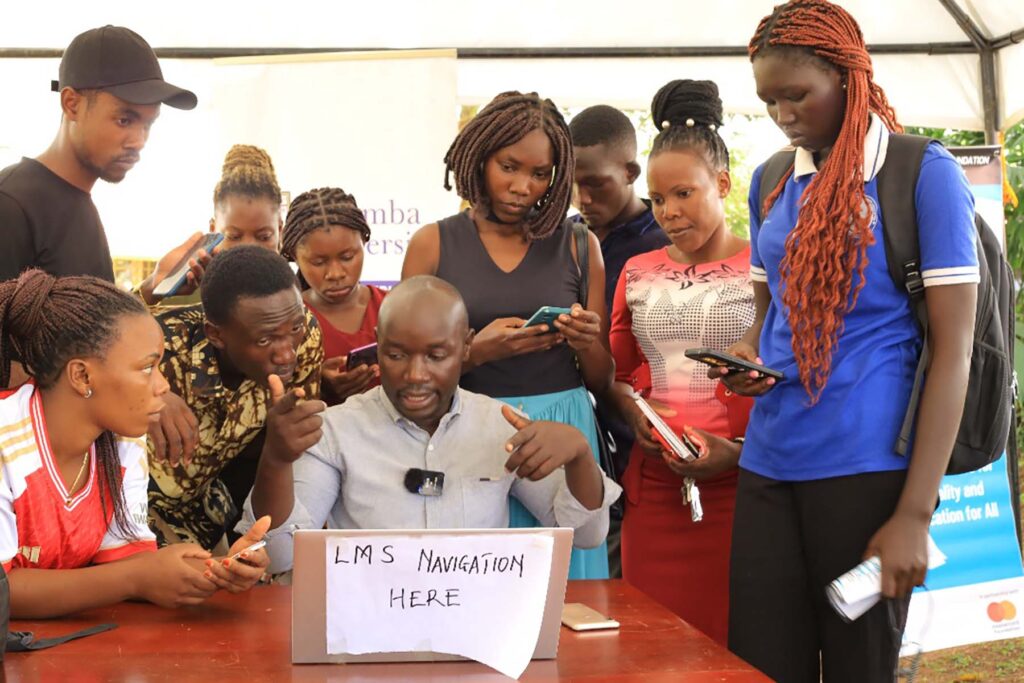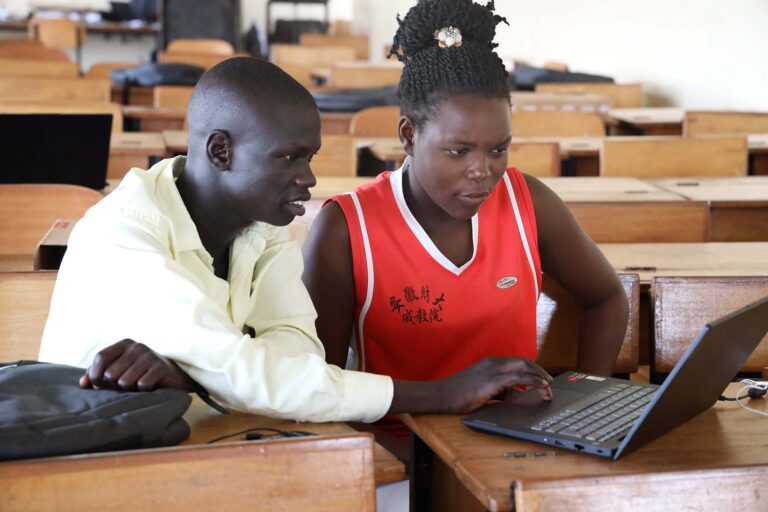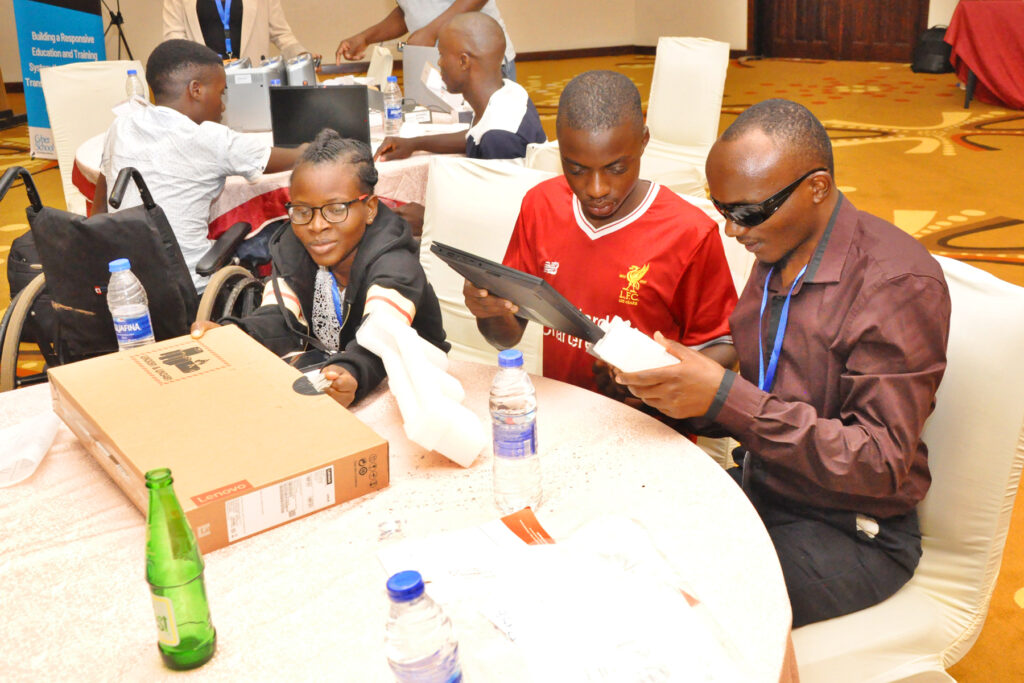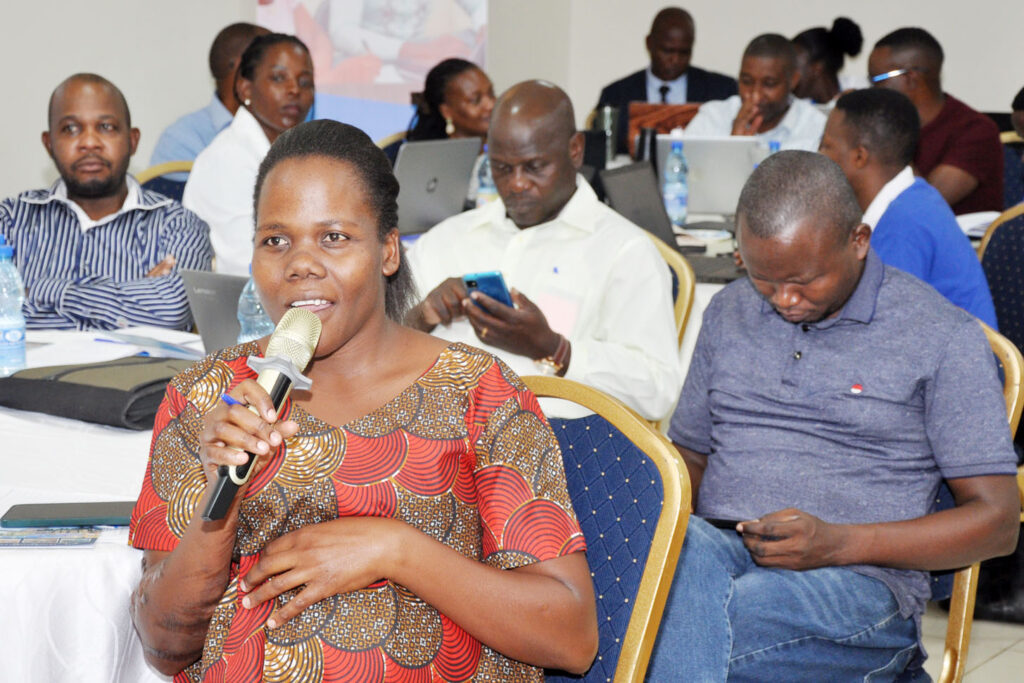CSTS-Mastercard Foundation Uganda eLearning Initiative for Education Institutions
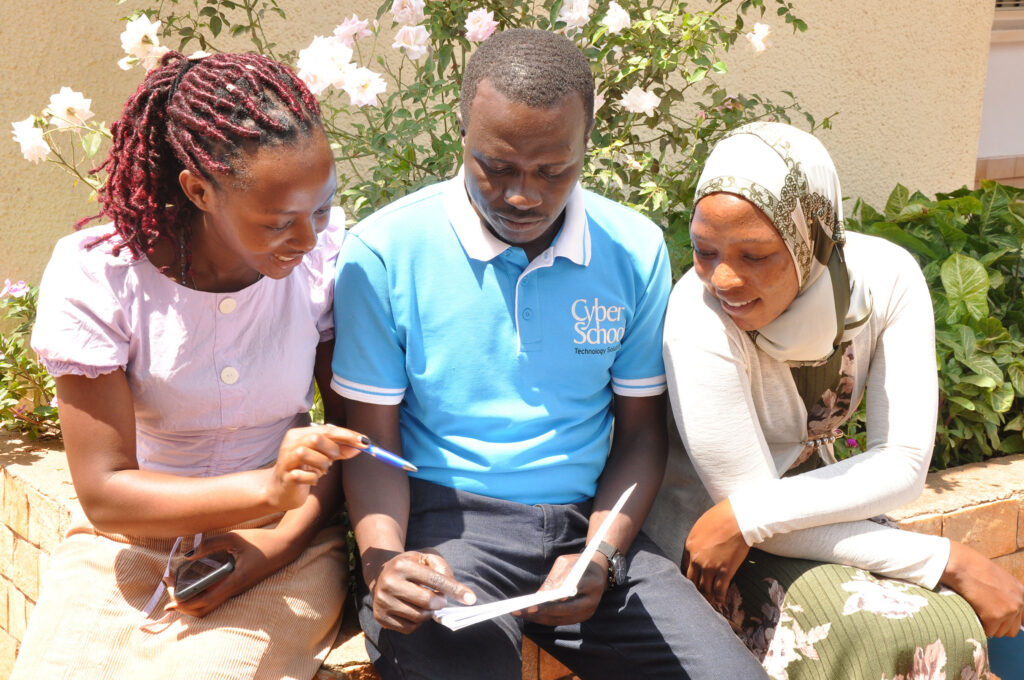
Despite efforts made to incorporate ICT into mainstream curriculum, Uganda’s education system is still rooted in the traditional rote approach with very limited scope for the application of concepts- notably the problem of access to modern technology platforms to keep pace with learning and teaching in the 21st century. The education system continues to confront key challenges at all education levels: access to, quality of, and relevance of education.
The COVID-19 pandemic demanded that we rethink the trajectories to diffuse eLearning or any other means to augment or replace our traditional classroom-centric educational delivery systems. According to the Ministry of Education, more than 73,000 learning institutions closed, resulting in 15 million learners and 600,000 refugee learners being out of school during the COVID-19 pandemic. This crisis exposed us to a new need for more equitable access to online education.
However, the majority of EIs do not have the capacity to deliver complete online programs. This presents an opportunity to use eLearning to improve delivery and create resilience. The ultimate intention of the initiative is to build the resilience of EIs to move beyond survival by empowering them to cope through deepening eLearning, skilling instructors and students in the use of digital technologies to teach and learn, while deliberately including lower-income youths, refugees, women, and people with disabilities.
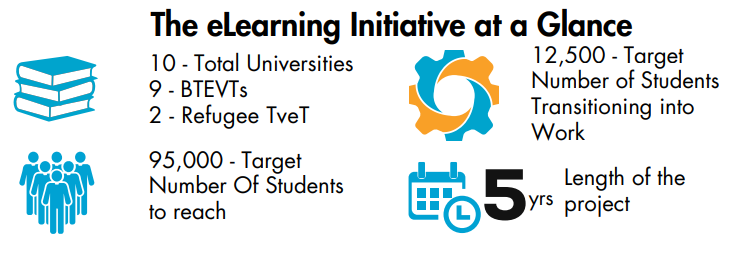 Our Approach
Our Approach- Support EIs to successfully implement eLearning, this will increase their resilience against situations preventing in-class learning as well as enable them to extend their services to new and a variety of audiences;
- Address the skills mismatch between the young people graduating from EIs and employability by integrating work readiness and entrepreneurship skills into the technical skills curriculum;
- Enhance support systems to deepen inclusive education and employment for persons living with disabilities.
- Increased access to market-responsive education and training systems through integration of work readiness and entrepreneurship skills;
- Enhanced quality online education and skilling in EIs.

